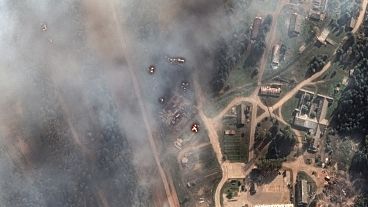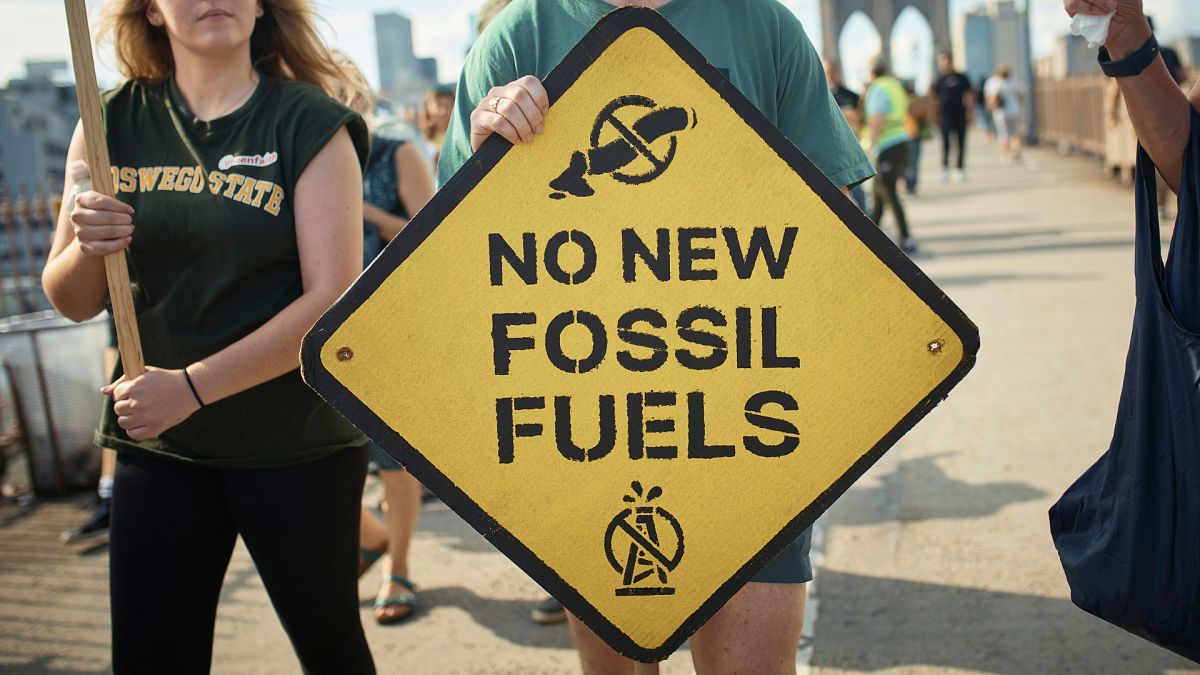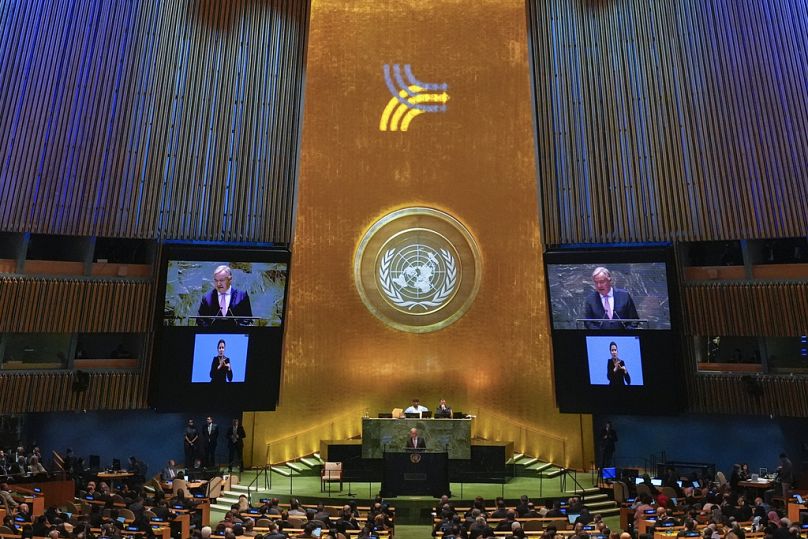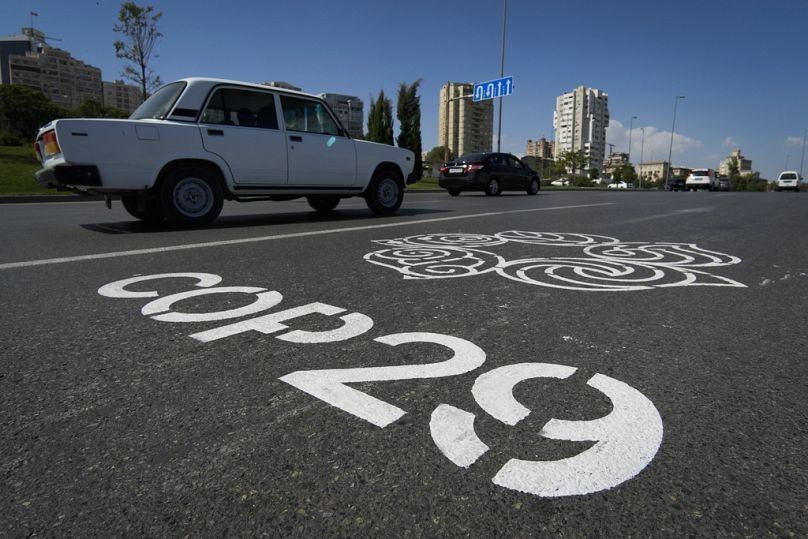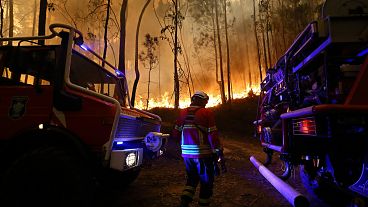The 42-page plan for the UN's 193 member states to work together in addressing the most significant global challenges has been years in the making.
A blueprint for addressing some of the world’s biggest challenges was agreed on Sunday by the UN General Assembly with climate change one of the headline topics.
It was adopted on Sunday during the opening of a two-day ‘Summit of the Future’ called by UN Secretary-General Antonio Guterres who thanked world leaders and diplomats for unlocking “the door” to a better future.
Countries are now tasked with implementing the actions featured in the pact. But its real-world climate impact remains to be seen after repeated efforts to derail its ambitions on vital topics such as fossil fuels.
What is the Pact for the Future?
The UN says the 42-page plan for its 193 member states to work together in addressing the most significant global challenges has been years in the making. And the path to reaching this consensus has undoubtedly been rocky.
As one of the most wide-ranging international agreements in a long time, it tackles everything from escalating conflict, digital cooperation and human rights to rising poverty and the threat of climate change.
It outlines 56 regional, national and international “actions” to address the most pressing global challenges. Now countries will have to choose how to implement these with Guterres calling on world leaders to do so.
“We are here to bring multilateralism back from the brink,” he said. “Now it is our common destiny to walk through it. That demands not just agreement, but action.”
What does the pact have to say about climate change?
Following the pact’s approval, Guterres drew attention to how the climate crisis is “destroying lives, devastating communities and ravaging economies” around the world. He specifically addressed the need for a “just phase-out” of fossil fuels but acknowledged that emissions were still rising.
The Pact for the Future states that nations are “deeply concerned at the current slow pace of progress in addressing climate change”.
It calls for countries to recommit to the Paris Agreement with actions like tripling renewable energy capacity worldwide and doubling the global average annual rate of energy efficiency improvements by 2030 alongside accelerating efforts towards the phase-down of unabated coal power; accelerating efforts globally towards net zero emission energy systems.
Building on progress made at COP28 in Dubai, the pact also reaffirms a global pledge on “transitioning away from fossil fuels in energy systems in a just, orderly and equitable manner”.
Inclusion in the pact is a major step forward for this commitment which was not universally popular at the UN climate conference in Dubai and critics say featured a number of loopholes.
An enduring ‘tug of war’ on fossil fuels
While campaigners, civil society groups and diplomats have welcomed the final outcome of the summit, many are cautious about what it really means for climate action.
The Fossil Fuel Non-Proliferation Treaty Initiative claims the pact has showcased an enduring “tug of war” between nations vulnerable to climate change and a small group of fossil fuel-producing states. Early drafts had reportedly dropped references to fossil fuels altogether.
The campaign for the creation of a treaty to stop fossil fuel exploration and expansion says that, once again, a group of the most vulnerable nations has “held the line” and “overcome last-minute dangerous amendments”.
“Reaffirming the agreement made in Dubai highlights the vital role of civil society and visionary governments in shaping global governance,” says Alex Rafalowicz, executive director of the Fossil Fuel Non-Proliferation Treaty Initiative.
“However, neglecting to take decisive action on the root cause of the climate crisis is a lost opportunity to tackle one of the greatest threats of our time.”
What does this mean in the run-up to COP29?
How countries choose to implement this pledge as part of their climate plans will be the true test of its impact.
The Fossil Fuel Non-Proliferation Treaty Initiative says attention will now turn to how many countries make concrete national commitments to phase out fossil fuels in their Nationally Determined Contributions (NDCs) to the Paris Agreement.
In the run-up to COP29 in Azerbaijan this November, the call for concrete action plans is one echoed by many.
Greenpeace International executive director Mads Christensen says, in the wake of record temperatures and growing climate consequences, “leaders must unveil 1.5°C-aligned national action plans with phase-out dates for coal, oil and gas”.
Christensen adds that the reinforcement of the UAE Consensus is a “good first step” but is the “bare minimum” of what is required.
Others highlight that a robust plan for climate finance is also needed to help fund a just transition away from fossil fuels.
“The Pact for the Future is proof that the UAE Consensus is the minimum standard, but we need stronger willingness to phase out fossil fuels paired with sufficient support for developing nations, if we are to see genuine progress,” says Prime Minister of Tuvalu, Feleti Penitala Teo.
“It is imperative that we unite behind the movement towards a new treaty that prohibits the expansion of fossil fuel projects and commits to a just and equitable transition.”




